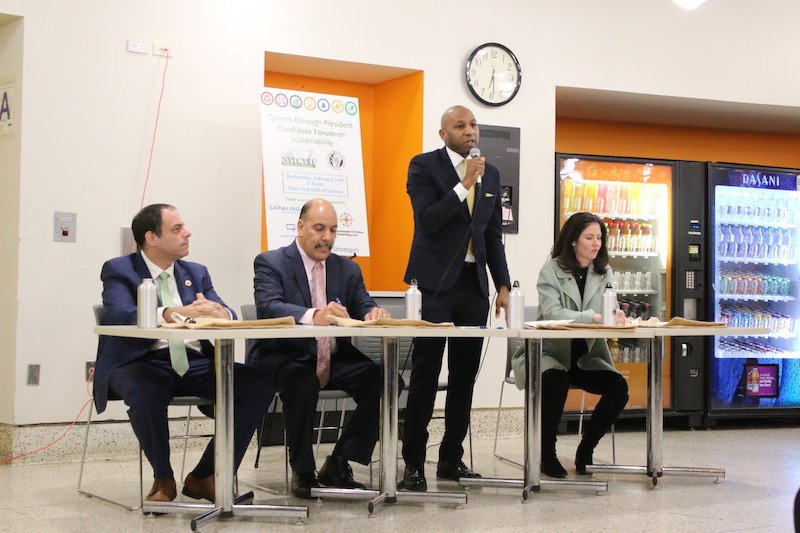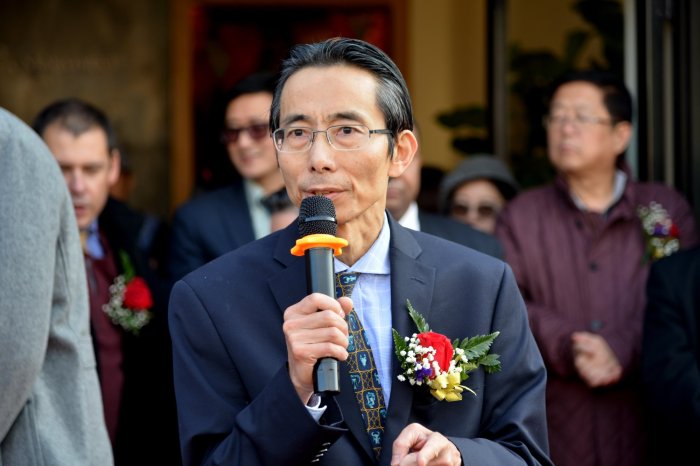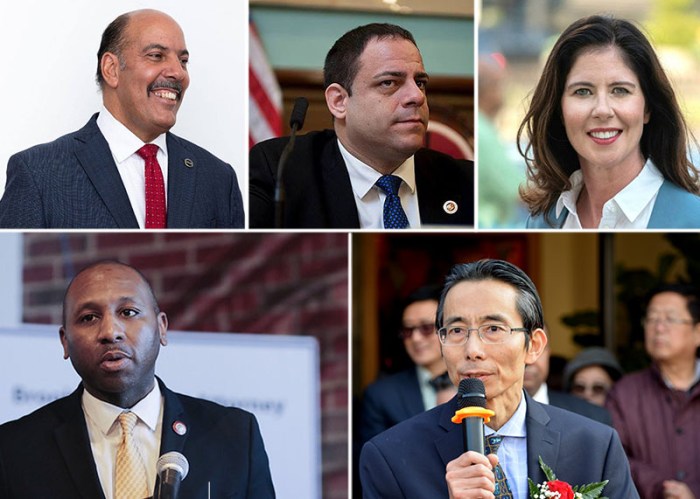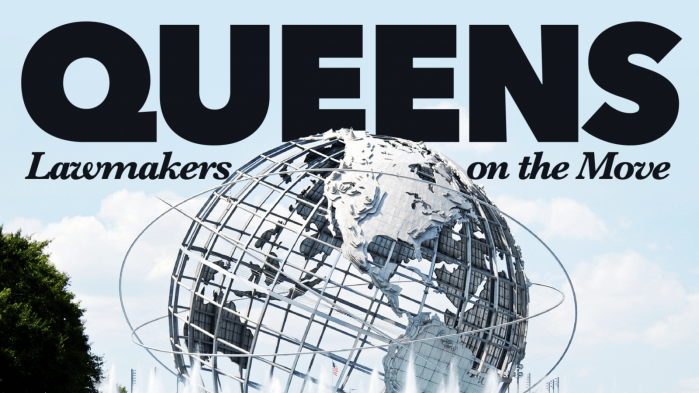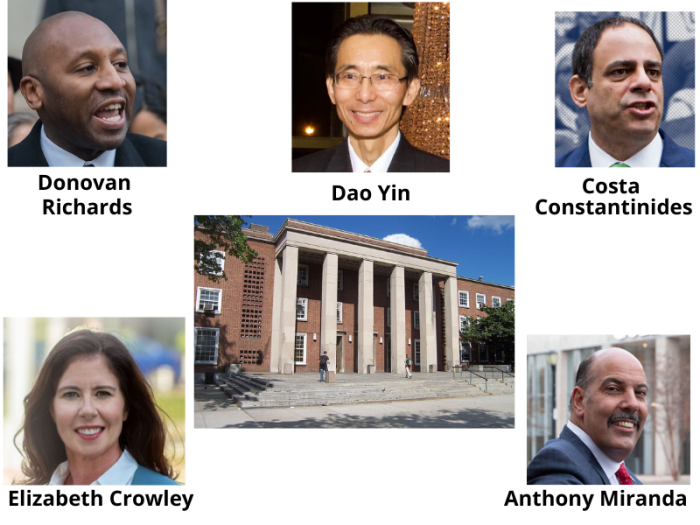In the most recent public forum this week, Queens borough presidential candidates laid out their plans for environmental infrastructure before the New York League of Conservation Voters with Wall Street Journal reporter Katie Honan serving as the moderator.
Every candidate was given two minutes to answer questions regarding their platforms on creating an eco-friendly Queens.
The major takeaways from the event came in the form of how each candidate would address transit, handle land-use, and use the budget if elected.
Throughout the debate former Council Member Elizabeth Crowley doubled down on her plans for transit. Making transit affordable and restoring the Lower Montauk line were the pillars of her environmental platform.
“We need a borough president who will embrace a multimodal strategy to enhance public transportation,” stated Crowley. This encompasses utilization of rails from the LIRR’s Lower Montauk Branch to Rockaway Beach and connecting it to midtown Manhattan, as well as working toward making busses free for those who qualify for reduced rates.
To her, this plan would get more people out of their cars and onto buses and ferries and move Queens toward the forefront of becoming carbon-neutral.
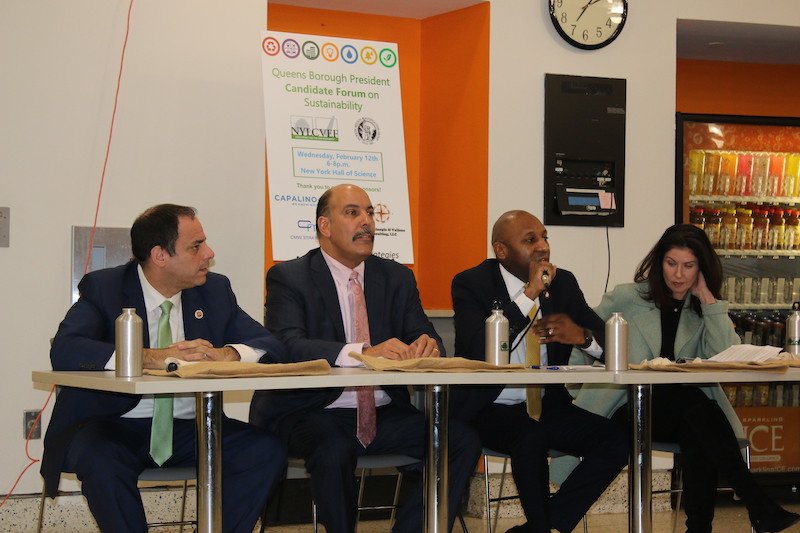
City Council Member Donovan Richards (D-Arverne, Bayswater, Broad Channel, Cambria Heights, Edgemere, Far Rockaway, Howard Beach, Jamaica, JFK Airport, Laurelton, Rockaway Beach, Rosedale, South Ozone Park, Springfield Gardens) argued of his strong track record in his district, especially the Rockaways, touting, “I secured $200 million in park money for my district.”
“One of the things we did, and I’m very happy to have fought for, was the return of ferry service to the Rockaways,” he went on to say. According to Richards, if the city is going to reduce car culture, they need to better utilize the waterways.
Richards also said that communication needs to improve between the Department of Transportation and communities, if a comprehensive plan is to be made. “It really needs to be a true dialogue,” he further discussed.
Anthony Miranda implored that an educational component be included in the way composting is handled.
He later presented an objection to the AirTrain that would run through Queens to Laguardia Airport. “Airtrain, no,” he answered when asked about it, explaining that it will run through neighborhoods that had no voice in the construction.
He did, however, object to the creation of protected bike lanes, which “there has to be an intelligent conversation, an intelligent plan, that we want to implement.”
“Some of these places where they’re talking about putting the protective barriers, they are not considering the impact on the residents living there in terms of emergency response,” he explained.
City Councilmember Costa Constantinides (D-Astoria, East Elmhurst, part of Long Island City, Woodside), in his introduction, stated that climate change is “the biggest challenge of our generation. Throughout the debate, he proposed various plans he would institute if elected, which included sustainable development, a climate-focused budget, and the creation of a deputy borough president for sustainability.
“Rising seas and rising rents are forcing people from their homes,” he claimed in his pledge for sustainable housing. In addition to it being affordable, he ensured attendees that it would create union jobs that would pay enough for the workers to live in what they are building.
President of the New York League of Conservation voters, Julie Tighe, explained the goals of the forum in an interview with Queens Kings County Politics.
“Our goal is to make sure that both candidates and voters are paying attention to the environment when they’re thinking about who they want to see elected into office,” she commented in regards to the objective of the event,” said Tighe.
“They need to use the power of the bully pulpit to make sure that they’re educating the public about the actions they can take,” she added.
The special election on March 24.


